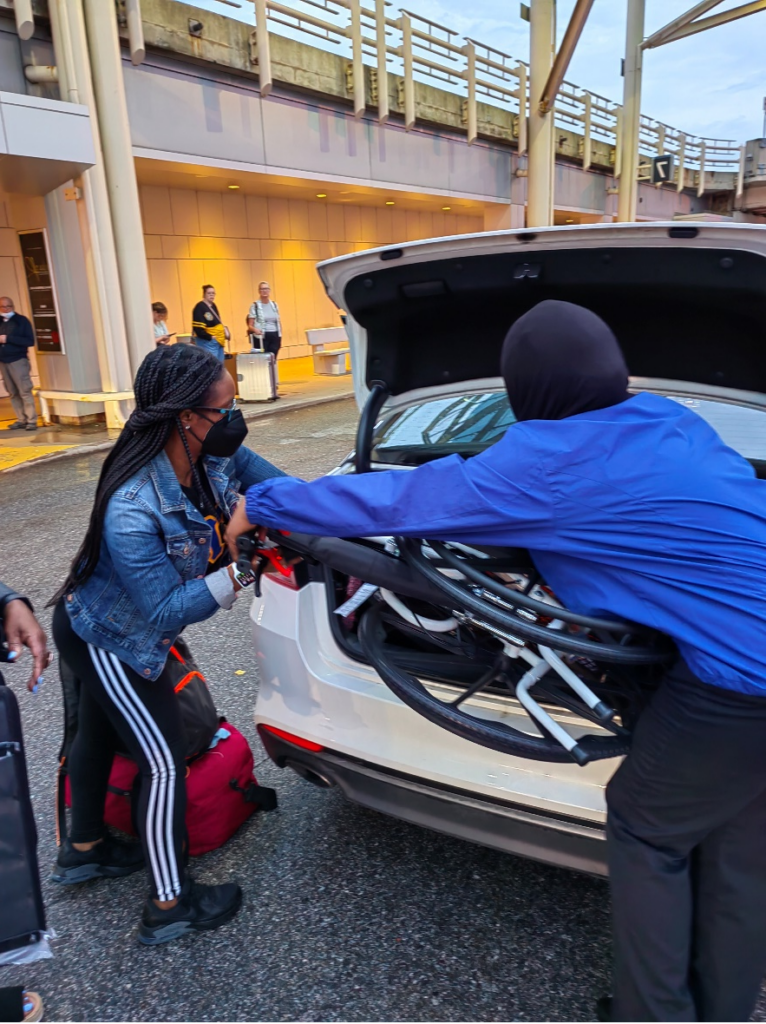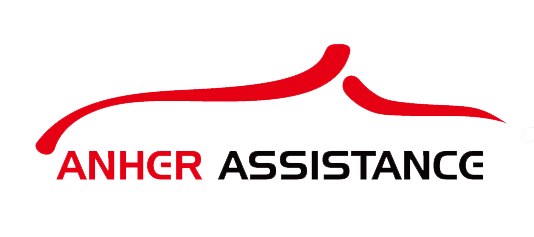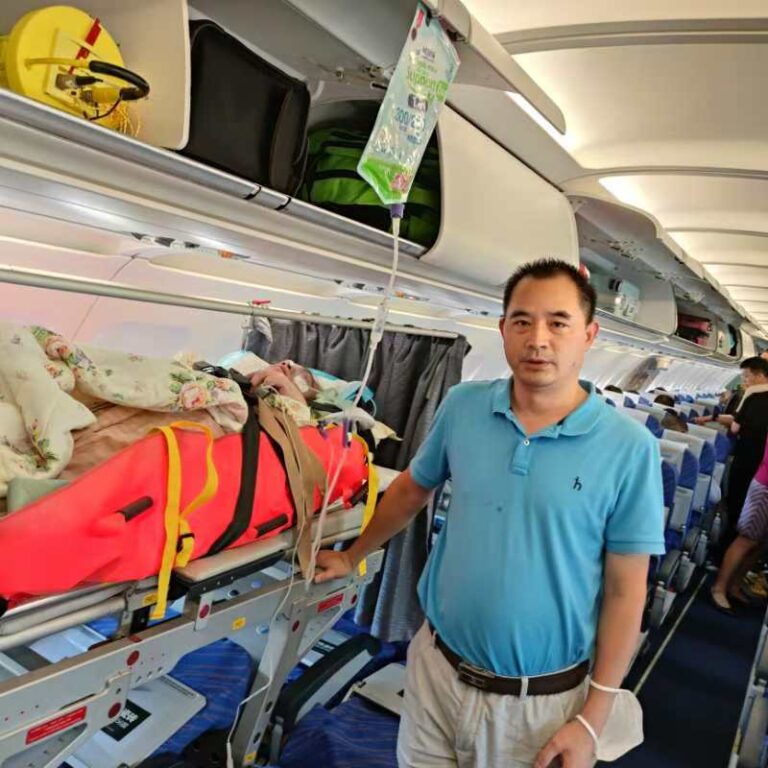On May 9, 2022, the U.S. Consulate General in Guangzhou requested assistance for two American stroke survivors in Shenzhen. Their vital signs were stable, and they needed to return to the U.S., but had limited funds. They requested one doctor to accompany them to Chicago and Cleveland.

According to our standard procedures (over 10,000 cases handled), the embassy should provide patient information. However, due to the U.S. Embassy’s insistence on confidentiality, they presented three itinerary options. The “Anhe Aid” call center, adhering to the principle of “not leaving anyone behind,” provided quotes for each option.
After accepting the quotes, the U.S. Embassy continued to change the itinerary, requesting execution according to their preferences. This caused numerous complications for the repatriation, but with the patient’s well-being as the top priority, “Anhe Aid” successfully completed the task using one doctor, one business class seat, and one economy class seat.
On May 9, the case was reported, but no medical reports were provided, only a one-sentence description of “post-stroke sequelae.” After discussions between the department manager and the on-duty doctor, a quote was provided, considering the following factors:
- Visa issues: China and the U.S. had just resumed flights, with limited options and long intervals. While the medical staff had long-term visas, the patients had Chinese visas, which could lead to flight changes and delays.
- Two wheelchairs and one doctor on the connecting flight could result in suboptimal care for the other patient, so this was communicated in advance.
- The repatriation flight was chosen to have the lowest risk of refusal, shortest flight time, daytime arrival, and minimal layover duration.
- Before departure, local hospital medical reports and patient photos were required to avoid termination of the repatriation.
Between May 9-18, after three itinerary changes, the U.S. Embassy requested execution according to their requirements.
On May 24, an ambulance picked up the patients and met at the Shekou Port in Shenzhen, but they were denied boarding. The Americans were outraged but left after unsuccessful negotiations. The “Anhe Aid” doctor immediately called an ambulance to take the patients to Shenzhen Cooperation Hospital for admission and nursing care. (Note: Due to the lack of information provided by the embassy, the female patient had left-sided muscle strength of grade 4+ and severe depression, while the male patient had left-sided muscle strength of 2-3, rigid paralysis, inability to sit, and lying flat was the optimal position.)
On May 26, the U.S. Embassy arranged another departure from Shekou Port, but they failed again (Hong Kong airport does not provide wheelchair services for non-ambulatory passengers due to the pandemic). That night, a China Southern Airlines flight from Guangzhou to Los Angeles was scheduled, and the U.S. Consulate was exasperated, leaving with a one-line message to meet at Guangzhou Airport.
Our doctor immediately called an ambulance to transport the two patients, the doctor, and the equipment to Guangzhou Baiyun Airport. The “Anhe Aid” call center simultaneously processed ticket refunds, rebooked flights, and applied for fitness-to-fly certificates.
Three hours later, the ambulance arrived at Guangzhou Baiyun Airport.
After obtaining boarding passes, with the assistance of airport staff, they boarded the flight smoothly. The U.S. Embassy coordinated services at Los Angeles Airport, and upon landing, two staff members with wheelchairs met the patients. (U.S. airport services are generally unsatisfactory, and given the previous difficulties, the accompanying doctor strongly requested coordinated services at Los Angeles Airport.)
However, the connecting flight to Chicago was not as smooth: With airport staff assistance, the male patient walked to another terminal, while the accompanying doctor escorted the female patient (depression + hemiplegia) out of the airport to meet the receiving family. The male patient only had a Chinese WeChat account and no U.S. phone number, and there was no internet at the airport, making contact impossible.
The “Anhe Aid” accompanying doctor, relying on experience, found the United Airlines office, requesting notification of the client (name, passport number) and assistance in locating them, as well as arranging for someone to escort them to the boarding gate for the next flight. Finally, 45 minutes before takeoff, they found the client who had wandered off due to staff error. This client had lived in China for 6 years and was somewhat unfamiliar with the U.S.


图三:搞错了登机口的轮椅工作人员,推着客人急急赶路


图六:赠送中国轮椅,帮助他以后的生活



.pdf-image-009.jpg)

.pdf-image-011-768x1024.jpg)
.pdf-image-010.jpg)